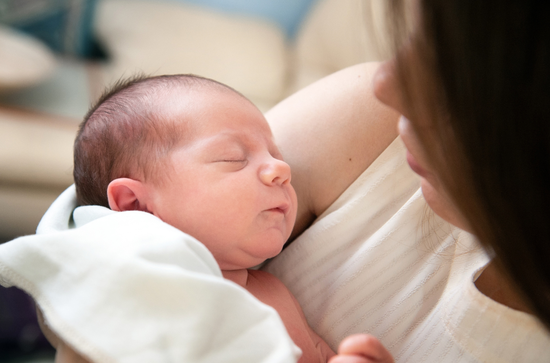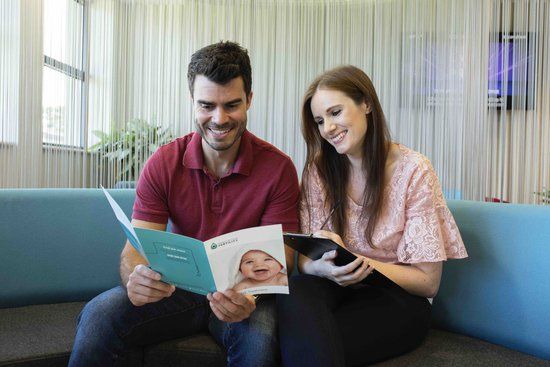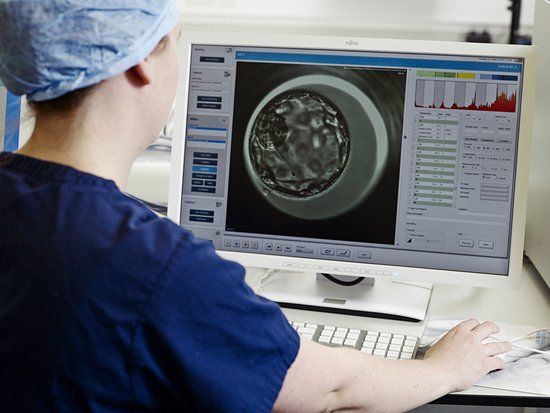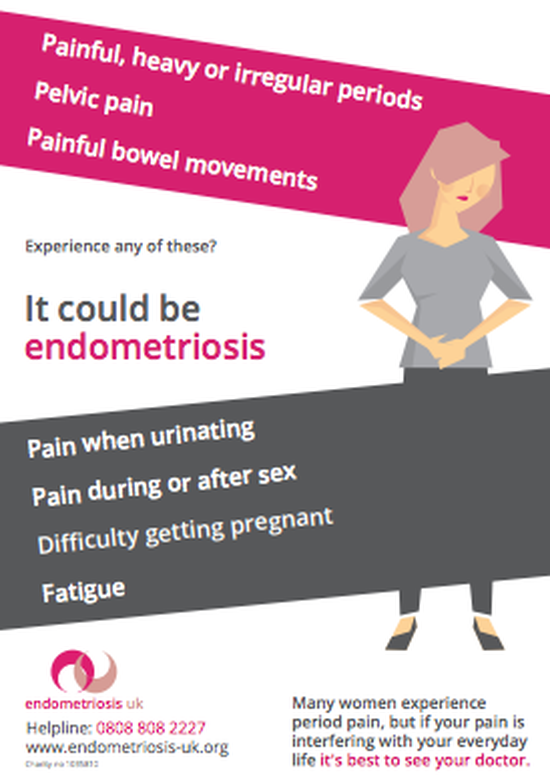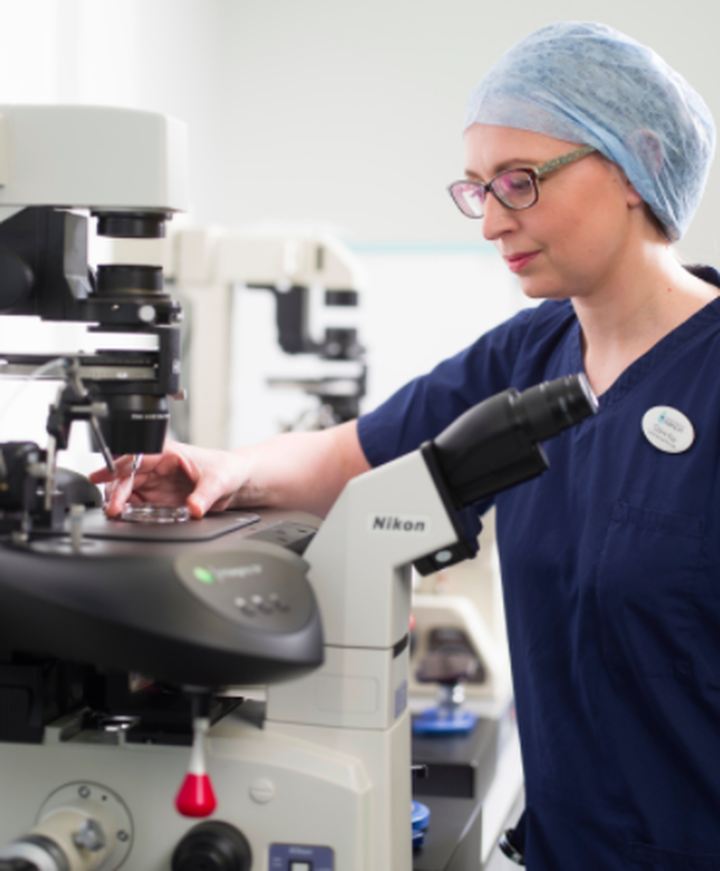
Do you know what FSH is? Or hCG? If you’re browsing fertility forums or websites in preparation for IVF and fertility treatment, you’ll encounter a lot of abbreviations, acronyms, scientific and technical terms that may leave you confused.
Here’s our snapshot IVF and fertility glossary to help you understand more about your treatment journey, and what all the ‘fertility speak’ means:
Fertility medications and hormones
AMH:AMH is Anti-Mullerian Hormone. AMH is a hormone made directly by the ovarian follicle that contains the egg. AMH tells us your ovarian reserve – the number of eggs you have remaining. If you have a very low blood AMH level, it means you don’t have many available eggs. If you have very high AMH levels, this means you have lots of follicles in your ovaries, but this could mean you’re at higher risk of complications such as Ovarian Hyperstimulation Syndrome (OHSS).
Clomid:Clomid (clomiphene) is an oral medication used to simulate or regulate the ovaries.
Cyclogest:Cyclogest is a pessary that contains progesterone. You’ll use Cyclogest from the day of egg collection, as it helps your womb lining to prepare for embryo implantation and supports early pregnancy. You’ll continue to use it until the results of your treatment are known.
FSH: FSH is Follicle Stimulating Hormone. FSH is produced by the pituitary gland and is one of the main hormones responsible for egg production. If your blood test shows a high reading of FSH, this can be an indicator that you have poor ovarian reserve. This is because your body is producing higher levels of FSH than normal in an effort to stimulate your ovaries.
Gonadotrophins:Gonadotrophins are hormones that are given by injection to stimulate the ovaries to produce eggs ready for IVF. Gonadotrophins include Follicle Stimulating Hormone (FSH), Luteinising Hormone (LH) or a combination of both.
hCG:Human Chorionic Gonadotrophin is an injectable hormone that helps your eggs to go through the final stage of maturation so they are ready for collection. You’ll receive a hCG injection to ‘trigger’ the final stage just before your egg retrieval procedure.
LH: LH means Luteinising Hormone. Together with Follicle Stimulating Hormone (FSH), it’s one of the necessary hormones needed for ovulation.
Fertility terms and treatment phrases and abbreviations
Abstinence:The practice of not indulging in something; typically alcohol or intercourse
AI:Artificial Insemination is a treatment that can help some couples have a baby. It involves directly inserting sperm into a woman's womb.
Anovulation:When you don’t ovulate or ovulate rarely.
Antisperm Antibodies test:A test to see if antibodies are affecting sperm function and ability to fertilise an egg. It’s performed as part of your semen analysis test.
Azoospermia: This is the term for when a man has no sperm present in his ejaculate. Causes include a blockage in the tubes that transport the sperm, vasectomy, failed vasectomy reversal or low or no sperm production in the testicle. Treatment for Azoospermia includes Surgical Sperm Retrieval.
Blastocyst:A blastocyst is an embryo that has been developed for longer after fertilisation, to day five of development instead of day three. A blastocyst has different cell types – inner mass cells which develop into the foetus, and Trophectoderm cells which become the placenta. If you’re having Pre-Implantation Genetic Screening as part of your IVF cycle, the biopsied cells are Trophectoderm cells.
DI:DI is short for Donor Insemination, when donor sperm is inserted into the womb to fertilise the egg.
Down regulation:‘Down regulation’ is the term used when your natural ovarian function is ‘switched off’ during your treatment cycle through the use of fertility medications.
Egg-sharing:Egg-sharing is the process of donating some of the eggs retrieved during your own IVF cycle, to help other women. When you egg-share, you become an egg donor and receive appropriate counselling. Your IVF cycle is offered at a significantly reduced cost.
Embryo Freezing:The preservation of embryos at sub-zero temperatures.
Endometrial Scratching:A pre-IVF procedure where the lining of the womb is gently scratched. Endometrial Scratching is thought to change the way the womb lining grows back, making it more receptive to transferred embryos. We offer the procedure to our own patients and privately to those having treatment elsewhere.
HyCoSy:Hysterosalpingo Contrast Sonography is a non-invasive ultrasound procedure that checks your womb and fallopian tubes.
ICSI: ICSI means Intracytoplasmic Sperm Injection. It’s an in vitro fertilisation procedure in which a single healthy sperm is injected directly into an egg. ICSI is most commonly used for cases of male infertility.
IUI:IUI means Intrauterine Insemination, which is a fertility treatment that involves placing sperm inside a woman's uterus to enable fertilisation.
IVF:IVF is In Vitro Fertilisation, it involves the fertilisation of an egg (or eggs) outside the body. ‘In vitro’ means ‘in glass’.
LH surge:Luteinising Hormone is released naturally just before ovulation. Your ‘LH surge’ indicates when ovulation is about to happen, usually in the next 12 to 24 hours.
Luteal phase:The luteal phase is the second half of your menstrual cycle. It begins straight after ovulation, and it lasts until you start your next period. The average luteal phase is around 14 days, and during this time your body prepares for the possibility of pregnancy. Progesterone is released to thicken the womb lining ready for a fertilised egg.
Partner IVF:This is a way for partners in a same-sex relationship to both be part of the treatment cycle. Eggs are collected from one partner and fertilised with donor sperm, the resulting embryo is then implanted into the other partner. So one partner uses her eggs, the other carries and baby and gives birth.
Pre-Implantation Genetic Screening (PGS): PGS is a test to check the embryo has the correct number of chromosomes; so only those with normal levels are selected for transfer. It is not a test to check the sex of an embryo.
Sperm DNA damage test:DNA damage in sperm is a hidden cause of infertility and miscarriage. The sperm DNA damage test we use – SpermComet – examines levels of DNA damage in each individual sperm.
Subcutaneous injections:Subcutaneous injections are medications that are injected just under the skin, compared to intramuscular injections that are injected directly into the muscle. Our fertility nursing team will give you practical injection teaching as part of your IVF cycle, so you confidently and safely administer the medications you need to at home.
Fertility technologies
Electronic Witnessing:Electronic Witnessing is our ‘track-and-trace’ system that ensures you use only the eggs, embryos and sperm belonging to you in your treatment cycle.
EmbryoGlue: EmbryoGlue is a product we use at no extra cost to you, which can help your embryo to adhere to the uterus after transfer.
EmbryoScope:Our EmbryoScopes are special incubators that produce a time-lapse video of the development of your embryos, helping us to identify which embryos have the highest potential for pregnancy.
Ultrasound:An ultrasound is a method of scanning that uses high frequency sound waves to produce images of internal organs such as the womb and ovaries.
Vitrification:Vitrification is the freezing method we use in our laboratory for eggs and embryos. It helps to prevent damage to the cells, resulting in high survival rates for frozen eggs and embryos.
Fertility treatment: Clearly and simply explained
At Manchester Fertility it’s our aim to make your path to parenthood as stress free as we can – and this includes avoiding confusion by making sure you clearly understand what your treatment involves and what’s going to happen. If you are ever unsure about any aspect of your journey, you can talk to our friendly Patient Advisors on 0161 300 2737.
To begin treatment with us, you don’t need a GP referral. Self-refer for fertility treatment here and we’ll be in touch to make you your first appointment.
Last updated: 18th December 2020


